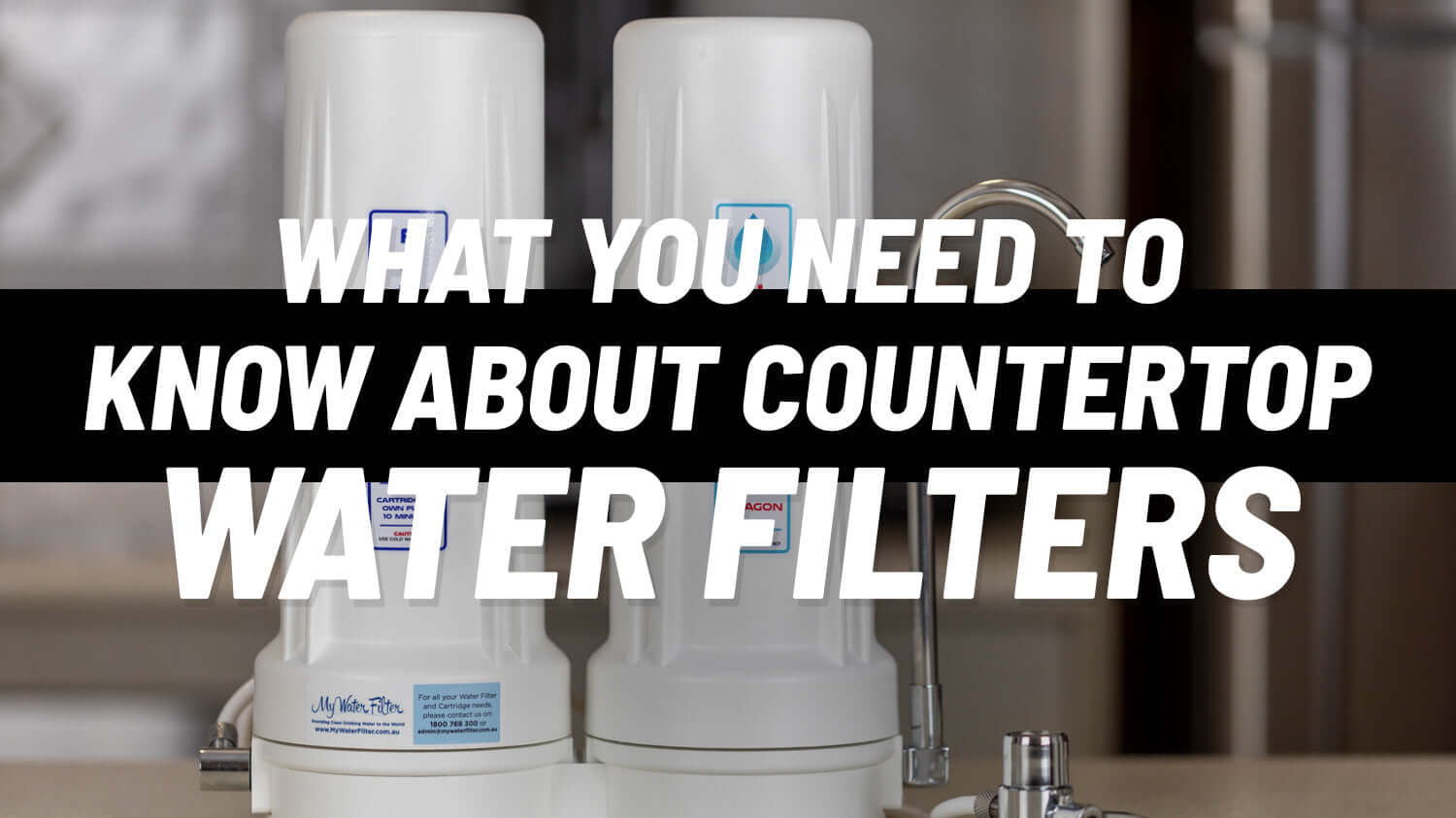What You Need To Know About Countertop Water Filters
One of the best ways to improve your life is by starting small and making small improvements in what you do every day.
This can profoundly affect how healthy and well we perform over time, so let’s take water as an example: many people drink it throughout their lives, which makes investing some extra money into getting filtered or drinking bottled water worthwhile!

Filtered tap water will always be cleaner than unfiltered choices but sometimes, when our schedules demand convenience more than anything else, going without may seem easier.
Water is essential for life, but the quality can vary dramatically depending on where you get it.
Luckily there’s a low-cost solution that will provide great tasting and healthy water every day.
Countertop Water Filters

A countertop water filter (more commonly known as a Benchtop Water Filter) is a point of use water filtration system that turns tap water into healthy, clean drinking-water in minutes.
It can be installed right at your kitchen sink with the faucet or on any countertop for convenience around where ever you need it!
Why Invest in a Countertop Water Filter?

Tap water has dramatically improved in recent years. The Australian government's guidelines for tap-water pollutants are much more stringent than other countries in the world, and it is remarkably unlikely that you will contract any type of infection from drinking your local town's supply!
However, that doesn’t mean you’re not consuming harmful chemicals and contaminants either - some things just take a little time to manifest.
Contaminants in your water supply accumulate in the body over the years.
Even still, there are chemicals used to sanitise the water that create disharmony inside the body, plus water pipes that run beneath towns and cities grow old and corrode too. So nobody can be sure what lurks in the water coming out of their tap.
What Might Be Lurking in Your Water Supply

Depending on where you might live in the world, any of the following contaminants could pollute your water supply.
Microorganisms
Microscopic organisms in tap water are:
- Giardia
- Cryptosporidium
- Amoeba Bacteria (e.g. E. coli and Legionella)
- Algae
- Viruses
Sediments

Water coming from your taps or wells has much higher dissolved solids than filtered water. Unfiltered water from deep wells is vulnerable to contamination of clay particles, fine sand, and dirt.
There is a long list of inorganic contaminants present in community water. Two of the most common are:
Chlorine and Fluoride
 Chlorine is added to water for purposes of disinfection. It does kill bacteria, after which it becomes very harmful to your health. Chloramine is commonly used across Australia too.
Chlorine is added to water for purposes of disinfection. It does kill bacteria, after which it becomes very harmful to your health. Chloramine is commonly used across Australia too.
Chloramine is a type of disinfectant that can cause corrosion when mixed with lead. In 2000, Washington DC switched from using chlorine to chloramine in their tap water which resulted in massive contamination and dozens became ill or suffered permanent IQ loss as result.
Water distributors also add Fluoride to your water because the government requires it.
Read more about the dangers of drinking fluoride.
An even greater concern with fluoride is that it can damage your thyroid.
Fluoride affects production of hormonal signals, even at concentrations below what's allowed in drinking water and some places have tried trading chlorine for chloramine which may be worse because it produces byproducts like carcinogens.
And the list of contaminants continue. Feel free to keep reading more about the contaminants commonly found in Australian water supplies.
Countertop Water Filters for Every Australian

It is at this point that you need to make the decision for your self and for your family...
Am I going to risk my health by drinking all the chemicals that are being added to our scheme water system?
Am I going to trust that the recycled water has all been treated properly?
Because let me quickly tell you it has happened before and it will happen again that unhealthy water has been delivered through our drinking water systems in this country.
Other poisons found in our drinking water are from the old pipes, lead and heavy metals at times.
Types Of Countertop Water Filters

If you’ve decided that the best Water Filter for you is a Countertop (Benchtop) Water Filter, now you need to decide what type of cartridges to use.
Carbon
A Carbon Benchtop Water Filter is great if you are looking to remove odour and improve the taste of your water by removing Chlorine. Activated carbon binds contaminants on the surface of the carbon filter rather than physically absorbing them.
Activated carbon is highly effective as a water filter because it removes toxins from the water without stripping the water of essential salts and minerals.
Ceramic
A Ceramic Benchtop Water Filter is perfect for removing bacteria and cysts. A Ceramic cartridge removes contaminants through mechanical filtration by having millions of very tiny ceramic pores. These pores filter out silt, sand, dirt, sediment and bacteria.
Aragon
 Made by Geyser, Aragon is a unique product and a filtration media of its own kind.
Made by Geyser, Aragon is a unique product and a filtration media of its own kind.
The sad events of the Chernobyl nuclear accident allowed the creators of Aragon to use synthesised polymer materials for the clean up of radioactive water. Further investigation in the field of synthesis allowed them to create a new material which they named Aragon. This material successfully removes scale, viruses, bacteria and heavy metals.
Aragon cartridges treat the water simultaneously by mechanical adsorption and ion exchange methods.
Reverse Osmosis
A Reverse Osmosis system is excellent in cities and is one of the highest forms of filtration methods possible.
The only downside is that there is a lot of water wastage as the RO system splits the water and sends 50% of it down the drain with the contaminants.
Check out the Buyers Guide to Reverse Osmosis to learn more.
Best Countertop Filters

We’ve put together a list of our Best Rating Benchtop Water Filters that suit a variety of different situations to help you decide which filter is the best one for your kitchen.
If you have any questions or need assistance, please contact us. We'd be delighted to help.








